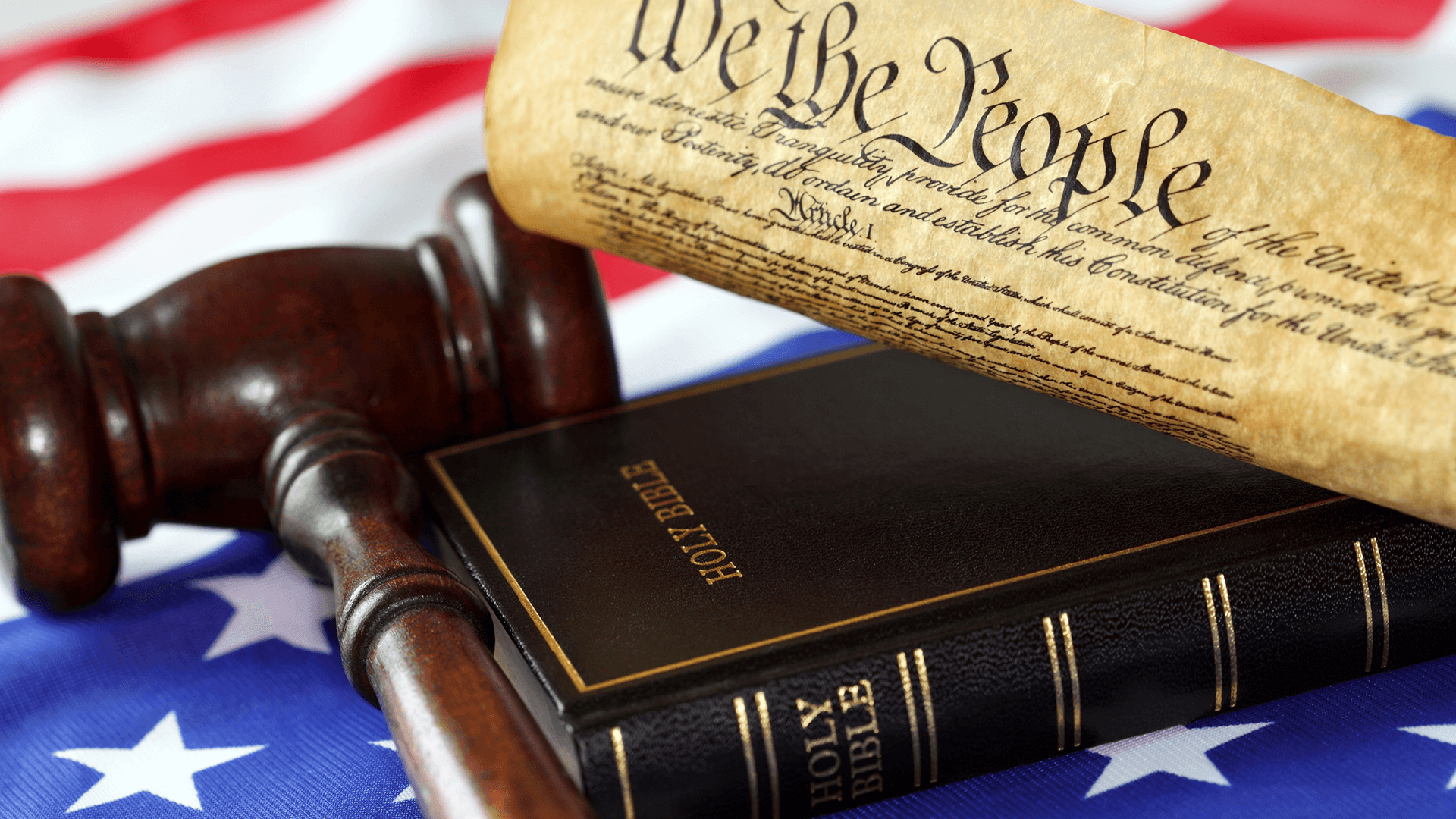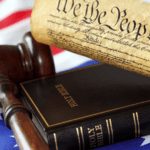Religious liberty is more than a line in the Bill of Rights; it’s woven into the very fabric of America. But what exactly is religious liberty, and why does it matter so much? In the face of cultural debates, shifting politics, and a sometimes-unpredictable future, understanding religious liberty becomes more than an academic exercise—it’s a necessity for every believer. Whether you’re a history enthusiast, a follower of Christ, or just someone who values freedom, knowing the roots of this foundational right equips you to safeguard it.
The Apostle Paul expressed a powerful truth in Galatians 5:1: “For freedom Christ has set us free; stand firm, therefore, and do not submit again to a yoke of slavery” (Legacy Standard Bible, 2021). The Founders, many of whom held to Christian principles, believed that the right to live according to one’s convictions deserved protection. In this series, we’ll uncover the biblical and historical origins of religious liberty, exploring its evolution in America and why it remains as crucial as ever for Christians today.
Foundations in History and Scripture
America’s commitment to religious freedom didn’t happen by accident; it was born of both historical necessity and deep convictions. The Founding Fathers were influenced by biblical principles, Enlightenment ideas, and the scars of religious oppression in Europe. Thomas Jefferson, for instance, voiced his vision of religious freedom in the Virginia Statute for Religious Freedom, stating, “Almighty God hath created the mind free… all attempts to influence it by temporal punishments… are a departure from the plan of the Holy Author of our religion” (Jefferson, 1786). Jefferson’s words echo a belief central to many of the Founders: freedom to seek the truth—particularly in matters of faith—comes from God.
This vision of freedom took shape in the First Amendment, which firmly declared, “Congress shall make no law respecting an establishment of religion, or prohibiting the free exercise thereof” (U.S. Const. amend. I). The Founders saw this as a balance—faith would be free from government influence, while government itself would respect the people’s religious convictions.
Biblically, the principle of freedom of conscience is rooted in passages like Romans 13, where Paul acknowledges the need to respect authority yet reminds believers that their highest allegiance is to God (Legacy Standard Bible, 2021). With this biblical foundation, America’s early leaders crafted a system designed to protect not only religious institutions but the personal convictions of every citizen. The Founders’ vision was that freedom would not be a privilege granted by the state but a right endowed by the Creator—a theme we’ll see woven throughout this series.
Key Themes and Series Overview
In this blog series, we’ll explore the historical and biblical foundations of religious liberty, tracing its journey from the early colonial days through to its present-day challenges. Each post will reveal a unique chapter in religious liberty’s story, with biblical insights and practical applications. Here’s what to expect in the upcoming posts:
Part 1 – The Colonial Roots of Religious Liberty
This post will cover the diversity of religious beliefs among America’s early settlers, from the Puritans in Massachusetts to the Quakers in Pennsylvania, and how their pursuit of religious freedom laid the groundwork for our national ideals.
Part 2 – Founding Principles and the First Amendment
We’ll dive into revolutionary ideas on personal freedom, particularly how they influenced the Founders and led to the First Amendment’s protections of religious expression.
Part 3 – Early Challenges and Interpretations (1800s)
As the United States expanded, the scope of religious liberty faced new tests. This post will examine landmark cases, like Reynolds v. United States, that clarified the boundaries between belief and practice.
Part 4 – The Expansion of Rights (1900s)
This post will discuss how the Supreme Court broadened protections for religious liberty in public life, with a special focus on key cases affecting education and public expression of faith.
Part 5 – The Civil Rights Era and Minority Faiths
Exploring increased protections for minority faiths, this post will cover the involvement of religious communities in the Civil Rights Movement and how this era expanded the understanding of religious liberty.
Part 6 – Modern Challenges and the Rise of RFRA (1990s)
This post will examine key cases such as Hobby Lobby v. Burwell, showing how personal faith intersects with public responsibilities in business and the workplace.
Part 7 – Religious Liberty in the Workplace and Public Sphere
We’ll examine significant cases, such as Hobby Lobby v. Burwell, where personal faith intersected with public responsibilities (U.S. Supreme Court, 2014).
Part 8 – Contemporary Issues and Future Directions
In the final post, we’ll consider current debates and look to the future of religious liberty in an increasingly pluralistic society.
Part 9 – The Global Influence of American Religious Liberty
In this post, we’ll explore how the principles of religious liberty in the United States have influenced global perspectives on faith and freedom. From early missionary movements to modern diplomatic efforts, America’s commitment to religious freedom has inspired other nations to recognize the importance of allowing individuals to worship according to their conscience.
Conclusion: Why Religious Liberty Matters for Every Generation
Religious liberty is not only a founding principle but a living, enduring right that shapes every aspect of public and private life. As we’ve journeyed from the colonial roots of religious freedom to today’s complex landscape, we see that each generation faces new challenges in understanding and protecting this foundational freedom. For Christians, defending religious liberty is more than a civic duty—it’s a spiritual calling to uphold God-given dignity for all people, affirming the freedom to worship and live according to one’s convictions.
In the face of modern challenges, the words of the Apostle Paul resonate: “For freedom Christ has set us free; stand firm, therefore, and do not submit again to a yoke of slavery” (Galatians 5:1, Legacy Standard Bible). As believers, our response to cultural shifts and legal pressures must be rooted in unwavering faith, a commitment to biblical principles, and a compassionate engagement with society. Each generation is tasked with passing on the torch of religious freedom, ensuring that this right remains vibrant for those who follow. With courage, integrity, and wisdom, may we stand as defenders of this precious freedom, living out our faith openly and fearlessly, for the glory of God.
Reflective Questions
As we embark on this journey together, I invite you to reflect on a few questions that will help you connect personally with the material:
- How does your understanding of religious liberty shape how you live out your faith today?
- What biblical principles guide you in defending and practicing your freedom of conscience?
- Why do you think religious liberty has become so deeply embedded in American identity?
These aren’t just theoretical questions; they’re invitations to consider how religious liberty impacts your life and faith. With each blog post, I hope you’ll find yourself not only learning but also deepening your conviction to uphold this precious freedom.
Conclusion
Religious liberty is not just a relic of American history—it’s a living, dynamic part of our identity and faith. As we journey through this series, we’ll see how religious liberty has shaped our nation’s culture and how it continues to be a beacon of hope for those who seek to live by conviction. Whether you’re new to the topic or well-versed in its nuances, there’s something here for everyone. Together, we’ll uncover why this freedom remains vital and how we, as believers, can protect it in the face of today’s cultural challenges.
Chris Reighley is a Colson Fellow and a leader grounded in faith, family, and mission. With a career spanning servant leadership, digital marketing, and servant leadership, he is driven by a passion for empowering others. He is pursuing an Executive Master’s at The Bush School of Government and Public Service at Texas A&M and a Master of Arts in Biblical Studies from Redemption Seminary. Through Shoe Leather Gospel, Chris is dedicated to combating biblical illiteracy and mentoring future leaders.

References
Jefferson, T. (1786). Virginia Statute for Religious Freedom. Virginia General Assembly.
Legacy Standard Bible. (2021). 2nd ed.
U.S. Const. amend. I.
U.S. Congress. (1993). Religious Freedom Restoration Act. Pub. L. No. 103-141, 107 Stat. 1488.
U.S. Supreme Court. (1878). Reynolds v. United States, 98 U.S. 145.
U.S. Supreme Court. (2014). Burwell v. Hobby Lobby Stores, Inc., 573 U.S. 682.






